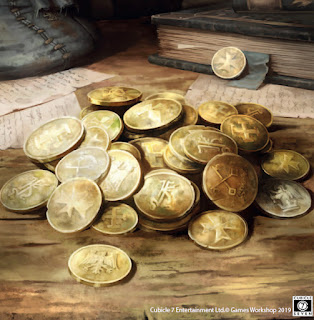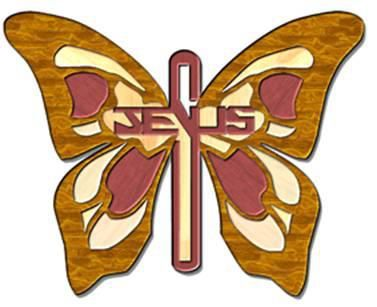Completely forgot to record this, sorry!
Well, these are two very familiar stories that we have just heard read, aren't they?
David killing Goliath, and Jesus calming the
storm.
I'm sure I've known them since I was in Kindergarten,
and I expect you have, too.
Let's look at them more
closely,
and then see what, if anything, ties them together
and what, if anything, they have to say to us as God's people
gathered here this morning.
So then, firstly David and Goliath.
Just to remind you, in the part of the chapter that we didn't read, as it would have made the reading far too long,we learn that the Israelites under King Saul are at war with the Philistines,
and things aren't going well.
The Philistines' champion, Goliath, is challenging someone to single combat, which was a recognised way of finishing a war –
you often find this happening in novels,
especially if you read the sort of historical fantasy novels I do!
Anyway, Goliath was rather terrifying and none of the Israelites felt able to stand up to him.
Now three of Jesse's sons are fighting with the army,
and David, the youngest, is mostly responsible for looking after the sheep.
One day his father tells him to leave all that, and to take some food to his brothers and their commanding officer in the camp,
and to come back with news of what's going on
and whether his brothers are all right.
So David goes off.
And, of course, when he gets there, he hears all about Goliath's challenge, and the reward the king has put up for defeating him –
a big financial reward, plus his daughter's hand in marriage and tax relief for his family,
the usual sort of thing that heroes always are promised!
David keeps asking about this,
and his eldest brother tells him to shut up and go home:
“You've only come to watch the fighting.
Now go away and look after your sheep and stop being such a smartarse!”
But David, quite rightly, takes that as merely elder-brother-itis,
and goes on asking until he understands what is happening,
and what is at stake.
Then he has a bit of a think.
He can kill lions and bears and wolves when they threaten his flock,
he's been doing so for years.
How is Goliath going to be any different?
So he goes to the King and says he's up for it.
The king says “Don't talk nonsense, you're just a boy, how could you possibly fight a professional soldier?”
David explains about the wild animals and points out that if God has kept him safe from those, he'll surely keep him safe from Goliath.
The King is rather desperate by now, so he says, okay, have a go.
They load up David with armour until he can scarcely walk –
do you get the impression they are laughing at him?
But David, as we heard in our reading, said he couldn't manage with that.
And with a stone and his slingshot,
he hits Goliath square in the forehead, breaking his skull and killing him.
And, just to finish off the story, David grabs Goliath's sword and cuts his head off with it, and the Philistines all run away, so the Israelites are victorious.
There are some rather odd bits of this story, of course –
apparently, in the earliest versions nothing is said about David taking food to his brothers,
but he's just there with the army all along,
and they omit those verses where Saul appears not to know who David is, despite the fact that earlier in the book he has appointed him as shield-bearer and court musician.
And Goliath's height is rather more realistic –
instead of being over nine feet tall, he is described as over six feet tall,
which is still enormous by the standards of the day!
So some of the ambiguous bits are probably from a folk tradition of the story that got mixed in.
There are also questions as to whether that sort of armour was worn at that sort of date, and whether the tradition of challenging someone to single combat existed in that culture, and so on and so forth.
But I don't think they matter, because it doesn't make the story any less true, even if some of the factual details are arguable.
As they say, all the Bible is true, and some of it even happened!
So let's fast-forward nine hundred years or so and go a little further north along the Mediterranean until we reach Jesus and the disciples on the Sea of Galilee.
We don't know exactly where they were, it doesn't say.
What it does say is that Jesus has been teaching all day,
and vast crowds came to hear him,
so he stood in a boat so that everybody could see and, we hope, hear.
And at the end of the day, he suggests that they cross to the other side of the lake,
and he collapses, exhausted, on to a cushion in the stern and falls asleep while the disciples row across.
I don't know if you've ever been to Galilee?
I haven't, although my parents went with their church.
But some years ago now, one of the ministers in the then Brixton circuit went, and when he came back,
he told us that he had actually been on a boat on the lake when one of the sudden storms blew up,
and that it really had been quite scary.
And I’ve seen videos on YouTube, and it really does look scary.
I believe these easterly winds can blow up very suddenly, too,
and it might have been fine when they set out.
So there are the disciples,
many of them experienced fishermen who know about the sea of Galilee,
struggling to control the boat in the storm,
and there is Jesus, sound asleep.
So they wake him up and yell at him:
“All hands on deck, there!
Don't you go sleeping as if you don't care whether we drown or not!”
And Jesus, instead of helping to pull on the oars,
which is probably what they expected,
addresses the storm and it calms down as quickly as it came up.
And he asks why they were still so afraid?
Where, he wonders, was their faith.
And then, I expect, he helped them bail out the water that was swamping the boat.
But of course, this demonstration of his power over nature made them even more afraid than ever.
“Even the wind and the sea obey him!”
So, then, what is the link between these two stories, and what do they have to say to us today?
I suppose the obvious link is that, in each story,
people were out of their depth.
They couldn't control the situation.
The Israelites had no way of coping with the Philistine army,
and especially not with Goliath and his challenges.
The disciples couldn't cope with the storm.
They were out of their depths, and everybody was afraid.
David, when he went up against Goliath, or so we are told, said firmly that he was going in the Lord's strength, not in his own.
He refused to put his trust in bronze armour, but in the weapons he knew, backed up by the Lord's righteousness.
The disciples were unable to trust in their usual methods of getting home safely when the wind started to blow.
The oars simply would not co-operate, as the winds were too strong,
and those who didn't know how to row were wanted to bail,
but they couldn't keep up, either.
It wasn't until Jesus intervened that they were safe.
So it's a bit about trusting God when things go pear-shaped,
but, as we all know, that is easier said than done!
So maybe it's a bit about not panicking when things get out of control.
If we can't trust God –
and you know as well as I do that we can’t, not always –
if we can't trust God, then let's look round for someone who can.
In the Israelite's case, this was David.
He trusted God,
he didn't panic when he faced Goliath,
and he trusted that God would use his skills to defeat the enemy.
And that is exactly what happened.
The Israelites relied on David's faith, and God saved them.
And for the disciples, their faith was fast asleep in the back of the boat.
They, at that moment, couldn't trust God to save them,
but Jesus could, and did.
He didn't panic when he saw the boat was swamped,
he trusted that God would use his power to still the storm.
And that is exactly what happened.
The disciples relied on Jesus' faith, and God saved them.
Now, all too often, we are the ones who panic,
who can't cope,
when the situation has got out of our control.
I know I am.
But wouldn't it be lovely if we were the ones who people could rely on to have faith?
To not panic when we saw what the situation was,
to trust God to use our skills –
or to intervene directly in some way –
to save the situation.
Mind you, if we were like that –
and I'm sure some of us are, although not me –
then it is just as well we don't know it,
or we'd start to rely on our faith and not on God.
It's one of those paradoxes, like it always irritates me –
does it you? –
when people talk about the power of prayer, as it isn't the prayer, it is the God who answers prayer.
But I think we should all aspire to be that kind of person.
And you can't be one just by wishing.
It is really only by God's grace,
by God's power at work within us,
that we can become the people God created us to be,
people who don't panic when life gets out of control
but who trust God,
either directly or through the use of their skills,
to sort things out again.
There are times, of course, when all we can do is pray about a situation.
We can’t, after all, save migrants trying desperately to reach safety in small boats, for instance.
There are, however, small things that we can all do to help –
it does, of course, depend on the kind of person you are, but those of us who are registered to vote can,
should,
and dare I say must vote on 4 July.
I don’t presume to tell you how to vote, of course, that’s up to you.
Most of us can probably give a little to the local food banks,
even if it’s only a tin of cheap baked beans.
Many of us can be involved in Lambeth Citizens,
and some of us could even stand for the council.
But above all, sometimes we need to be the person who is trusting God when our friends or family can’t.
“I will hold the Christ-light for you in the night-time of your fear”, as the hymn says.
When we deploy the shield of faith, it’s not just for us, but for our friends and family, too.
We can grow into that kind of person by using the means of grace available to us –
prayer, fellowship, the Scriptures, Holy Communion.
But being aware, as Wesley was aware and reminds us in his sermon on the means of grace,
that they are only a means, not an end in themselves.
They need to be used to bring us closer to God,
so that God can, by the power of the Holy Spirit,
make us more the people we were created to be.
To become more like David, and less like Saul.
Amen.







